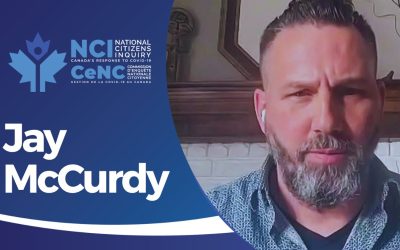A new study released today by the Frontier Centre for Public Policy (FCPP), a think tank based in the Prairie provinces, criticizes student unions in general and especially the practice of “mandatory student unionism.”
Jonathan Wensveen, the author, is a current graduate student at Carleton University studying political science and international relations. Wensveen was motivated to write the report, entitled “The Case for Voluntary Student Unionism,” by his own disappointment as an undergraduate with his student union and his frustration that he could not opt out of it.
Whether students agree or disagree with the report’s conclusions, it certainly comes at an appropriate time. Canadian higher education has been increasingly tense lately, with this autumn already characterized by protests over tuition hikes, arguments over the funding of student groups, and labour and academic strikes. Student unions have inevitably been drawn into – and sometimes incited – much of this controversy.
Wensveen’s report also taps into a potent market. Conservative students have long criticized university student unions, which have a reputation as centres of leftist activism. However, Wensveen’s report takes a more philosophical approach: he criticizes the idea of “mandatory” student unionism itself.
Wensveen recently agreed to a short interview with the Herald.
The Prince Arthur Herald: Tell us some background about yourself.
Jonathan Wensveen: After I was done with my undergraduate thesis, I was looking for something to fill my time with before I went to graduate school. I ended up interning with the Frontier Centre.
The Herald: Tell us about the Frontier Centre.
JW: It is a public policy think tank that addresses issues related to liberty and economics. A lot of the stuff they focus on is related to the West, the Western provinces. It is officially nonpartisan, but typically promote policies that reflect libertarian or free market ideals.
The Herald: What motivated you to write this report?
JW: My own undergraduate university. There was always kind of a resentment toward how the student union was being operated and how they were using student funds, and how students were being elected on mandates that only ten to fifteen percent of the student body had voted on. They were using money from all students to fund ideological pet projects, which they characterized as nonpartisan but were not really reflective of all students’ interests. I wanted to bring attention to this as a problem at all Canadian university campuses, and how many students are completely unaware how their student money is being used.
The Herald: Are there any services that student unions offer that you do think are useful?
JW: Lower tuition fees, student loan programs . . . [these types of projects] actually benefit all students – I think those are legitimate. The problem is that student unions now rely on larger organizations to do these, so the unions aren’t necessarily [justifying themselves.] [Student unions] should be advocating for government policies about tuition, student loans and grant programs that actually reflect the interests of all students. Unions are created on the assumption that they act to advance the interests of all their members . . . as opposed to saving the environment, or bringing awareness to nuclear proliferation – political issues that have nothing to do with the interests of students.
The Herald: You make a distinction between “rights” and “entitlements,” and cite healthcare as an example of an entitlement. In Canada, however, healthcare is increasingly referred to as a “right.” What is your take on that?
JW: The difference between a right and an entitlement lies in the recognition that rights exist before government and entitlements exist after the creation of government and are therefore the “gift” of it. Any program that is created because of what the majority of citizens want, and the keyword there is “want,” is an entitlement. Healthcare in Canada is an example of an entitlement. The key distinction is that the right to healthcare does not exist [in and of itself.]
The Herald: Your argument is very much a philosophical and legalistic one. Do you think students will be persuaded by such an argument, or are more interested in concrete concerns and self-interests?
JW: In order to have an intelligent debate about student unions you need to understand the philosophical bases of it . . . before you can make the case that student unions have the right to act on behalf of students. The entire debate rests, I think, on those key philosophical distinctions
The Herald: Do you think that we should give credence to the doctrine of “united we stand, divided we fall”? That is to say, do you think Canadian students’ needs could still be met under a system of voluntary unionism?
JW: The question is whether or not (a) it is democratic to coerce students into a union and (b) whether there is still an interest in having students’ needs represented by a union. [Voting numbers] seem to indicate student apathy . . . yet nonetheless students are forced to join student unions. It would be harder to make the case against compulsory student unionism if 80 to 90 percent of students were participating in elections, etc. but [that’s not the case.] Students don’t see the benefits of belonging to these kinds of organizations any more.
The Herald: Australia famously shifted to a system of “voluntary” student unionism, but that decision remains controversial. After many student unions, unable to sustain themselves, collapsed, some Australians think the decision was a mistake. How do you think Canada should interpret the Australian precedent?
JW: I obviously agree with the decision in Australia and think that in Canada we should adopt similar legislation. That they collapsed – that speaks to student disinterest in them. If there is a will and a want for a student union, there is nothing stopping students from creating one and sustaining one. But I would say the reason why, by and large, these student unions are no longer operating is because the majority of students are no longer interested in supporting them. It is a democratic reflection of the reality of the situation.
The Herald: A lot of your characterizations of student unions could probably be extrapolated to unions in general. Was that your intention?
JW: There is a key difference that I think people need to realize. Mandatory unions in the workforce are different in that if you don’t want to join one you can leave and work somewhere else where they don’t have a mandatory union. . . . Whereas in Canada all schools practice mandatory student unionism.
The Herald: Do you think your ideas about abolishing mandatory student unionism will be well-received by the average Canadian student?
JW: Just from my own experience, from my own undergraduate experience, a lot of students shared my experience and were very up-front about the fact they didn’t feel they should have to join these groups and fund them. [Resistance] usually comes from those that are directly benefiting from compulsory student unionism – especially those who work for [student unions] and are being paid by them . . . people who directly benefit from the structure of student unionism. As to the average student in Canadian universities, I would like to think they are embracing of the kind of ideas I am putting forth, but I can’t say for sure.


